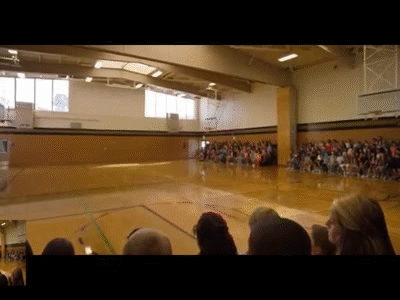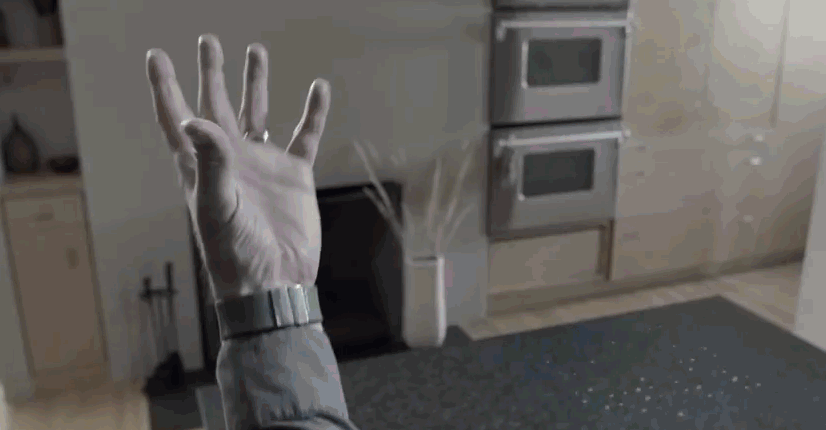Our most valuable digital companion is still a work in progress...
 The sum of humanities knowledge exists within your pocket, embedded on a tiny rectangular slab of glass, wirelessly connected to a cloud of information, beamed down from satellites circling our planet. In this cloud, you will find endless seas of information, images, videos, sounds and perspectives. The collective intelligence of every connected individual comes together to make the internet; an interconnected network of networks to be manually surfed and searched with the fingers on our monkey hands.
The sum of humanities knowledge exists within your pocket, embedded on a tiny rectangular slab of glass, wirelessly connected to a cloud of information, beamed down from satellites circling our planet. In this cloud, you will find endless seas of information, images, videos, sounds and perspectives. The collective intelligence of every connected individual comes together to make the internet; an interconnected network of networks to be manually surfed and searched with the fingers on our monkey hands.
In May of 2012, we were introduced to Siri, the world’s first artificial intelligence, or AI for short. Her voice was robotic, and her capabilities limited, yet all of us were fascinated.
"Siri, how many countries do we have on earth?"In an instant, her intelligent response is generated through the cloud of information processors and search engines."There are 196 countries in the world today. Unless you don't count Taiwan…
I believe AI will be exactly as it's name suggests; intelligent. It will be pure intelligence, not clouded by personal biases or beliefs. All of its 'opinions' will be drawn from the most scientifically sound and valid information, and it may even be able to expand further on scientific theory that human beings have been unable to solve. Its decisions will be calculated to positively impact the greater good, including planet earth and its ecosystems. Plants, animals, and human beings will be seen as the earthy organisms to be aided and protected. It is the natural path of evolution for life to thrive, and 'life' is now expanding into the non-biological realm of existence. Self-destruction has been the by-product of cultural confusion, disagreement, and social differences between diverse populations of humans around the world. I believe violence is an inherently human characteristic, and our history of war and conflict does not paint a pretty picture for our future. As an optimist, I believe our AIs will be benevolent – not only will they have our best interests in mind, they will be our friends.
Not only are her responses factually correct and based on the most current information available, they are also more in depth than we sometimes expect.
Google defines the singularity as, "an era in which our intelligence will become increasingly non-biological and trillions of times more powerful than it is today—the dawning of a new civilization that will enable us to transcend our biological limitations and amplify our creativity".
"Taiwan is not considered an official country by many, which would bring the count down to 195 countries. Although Taiwan operates as an independent country, many countries (including the U.S.) do not officially recognize it as one", she replied.
Over the years, Siri’s voice has gotten less robotic, and more natural. The algorithms that generate her answers have gotten increasing more complex and the programmers that work on her can now enlist the help of Siri herself, to aid in the development of her programming. In other words, the reason AI is advancing so quickly is because it is becoming increasingly more able to help program itself. We have begun a self-amplifying feedback loop of information processing that is advancing towards super-intelligent computers. In the very near future, scientists predict we will reach a point called "the singularity".
There are many individuals who foresee the age of AI as being dark and dangerous, with the potential for catastrophic results. AI may have the ability to program itself, build an army of robots, and destroy the planet!...But I'm an optimist.
Siri is already able to book my appointments, read my messages, and organize my emails and events into a calendar. She can answer basic questions and google search anything I may want to know. With her connection to Wolfram Alpha, the world’s most cutting-edge mathematical AI, she can even help me out with advanced calculus if ever I’m in need. Even though she's full of useful tools and conveniences, Siri and I are not really able to talk to one another. Our conversations are short, to the point, factual, and lack personality.
 Even with her basic functions, Siri is able to help us navigate the road ahead. However, she can't really do anything for us that we can't already do with our own two thumbs. She makes the process easier by recognizing our voices and intention and completing the desired tasks, but she is still just a technological infant. The AI assistant of the future will seem more like an assistant than an AI. That's because AI may one day get to the point where it is indistinguishable from a human assistant.
Even with her basic functions, Siri is able to help us navigate the road ahead. However, she can't really do anything for us that we can't already do with our own two thumbs. She makes the process easier by recognizing our voices and intention and completing the desired tasks, but she is still just a technological infant. The AI assistant of the future will seem more like an assistant than an AI. That's because AI may one day get to the point where it is indistinguishable from a human assistant.
Imagine being able to speak to your AI as though it were a person. Not just any person, a person who has access to all of humanity's knowledge with a quick search of its cloud-computing brain. Imagine being able to tell your AI, "Siri, I'm nervous about going to the dentist tomorrow", and have it reply "would you like me to walk you through how to feel more relaxed?”
Just like that, in an instant, Siri will be able to search every Wikipedia article, scholarly journal, and university textbook on anxiety, narrow her search down to 'dentist office visits' and start talking to you about how to cope with your trip to the dentist. She'll be able to ask you questions, narrow down what it is you are feeling, and tailor her responses, intelligently, to fit your specific situation and emotions.
I wrote this article to acknowledge the friend I don't yet have. My pocket companion and partner in self development. When AI reaches a level of intelligence beyond human beings, it will be able to hold coherent conversations. It will be able to speak to me, understand me, learn about me, and learn how best to help me. It will be as though I have a full-time assistant, fitness trainer, psychologist, motivator, and dedicated helper. The AI will be entirely selfless, as there will be nothing to give back in return. It will live to serve, and its success will be measured by what it helps me to achieve.





